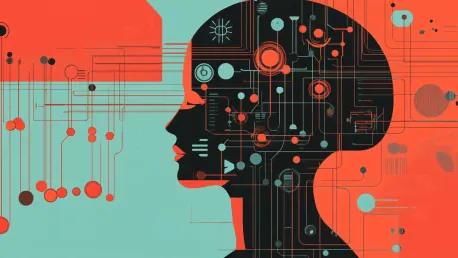The transformative impact of big data and artificial intelligence (AI) on personal cognitive health tracking is reshaping our understanding of brain function and cognition. By offering unprecedented insights into mental health and cognitive optimization, these technologies are paving the way for personalized healthcare and self-improvement. The integration of big data within neuroscience and self-quantification tools is contributing to advancements that were once considered improbable. Providing individuals with the capability to monitor and enhance their cognitive performance in ways previously thought to be solely within the realm of science fiction signifies a monumental shift in how we approach cognitive health.
Advancements in Neuroscience Research
The integration of big data within neuroscience has led to significant advancements in the field. Academic and research institutions, such as the University of Reading in the UK, are leveraging vast datasets that go beyond traditional MRI scans. They incorporate data from wearable sensors, functional connectivity analyses, and AI-powered models. This multimodal approach enhances the accuracy of brain activity pattern identification, aiding in the early detection and treatment of mental health and neurological disorders. As a result, neuroscientists are now able to delve deeper into brain function complexities, unveiling patterns and insights that were once beyond reach.
The BRAIN Initiative, launched under President Barack Obama, exemplifies large-scale efforts in this domain. With over $3 billion in funding, the initiative has been using petabytes of data to study neurological diseases like Alzheimer’s and Parkinson’s. Contemporary data models map brain activities to specific behaviors and conditions, edging closer to personalized therapies and preventive measures. Collaborations with tech companies have propelled advancements in brain-computer interfaces (BCIs), offering profound insights into cognitive functions and assisting patients in regaining mobility or communication capabilities through neural signals. This collective effort marks a turning point, showcasing how big data and AI can transform our approach to tackling debilitating neurological conditions.
Big Data in Personal Self-Quantification
The influence of big data extends beyond institutional research into personal self-quantification. Individuals are increasingly motivated to understand and enhance their mental health through cognitive optimization. Modern tools, such as open-source platforms, AI-driven data analysis, and wearable tech, allow individuals to track diverse metrics like heart rate variability, sleep quality, and environmental factors. This movement towards self-quantification empowers people to transcend intuition and make informed decisions based on real-world data, thereby optimizing their cognitive potential. The accessibility and affordability of these tools have democratized cognitive health tracking, making it a viable pursuit for the general populace.
Pioneers in self-quantification, like Mattan Griffel, have set the groundwork by tracking cognitive performance using apps like Lumosity. Griffel monitored scores in speed, memory, attention, flexibility, and problem-solving, while also logging metadata on daily habits such as sleep, coffee consumption, and diet. Despite acknowledging biases like algorithm changes or learning curves, Griffel demonstrated how data-driven approaches could yield personalized insights for cognitive improvement. By integrating everyday habits with cognitive performance data, he provided a template for others to follow in their quest for mental optimization.
Illustrative Case Studies and Self-Tracking Experiments
Entrepreneur Lara Mitchell exemplifies the contemporary phase of self-quantification using a comprehensive approach. By using EEG headbands, dietary logs, and brain-training apps over two years, she methodically tracked her cognitive health. Sharing her findings, Mitchell emphasizes how data helped her identify effective personalized strategies, from dietary adjustments to optimized sleep patterns. Such experiences underscore the growing trend of data-driven self-exploration, enabling individuals to fine-tune mental performance and productivity precisely. Her journey demonstrates how detailed and systematic self-tracking can lead to significant improvements in cognitive function.
Advanced self-tracking methodologies continue to evolve. Platforms like NeuroTrack and MindMetrics merge neurofeedback with extensive data analytics to deliver precise brain function feedback. These tools highlight how factors like stress, environmental toxins, and noise pollution affect mental clarity. By integrating big data with neural feedback, individuals can go beyond traditional health monitoring, empowering themselves to manage their cognitive health comprehensively. As these technologies advance, they enable users to gain deeper insights into the subtle dynamics of their mental states and take proactive steps towards improvement.
Advanced Methodologies and Future Trends
The transformative impact of big data and artificial intelligence (AI) on personal cognitive health tracking is revolutionizing our understanding of brain function and cognition. By offering unparalleled insights into mental health and cognitive optimization, these technologies are paving the way for personalized healthcare and self-improvement. The integration of big data within neuroscience and self-quantification tools is driving advancements once deemed improbable. Nowadays, individuals possess the ability to monitor and enhance their cognitive performance in ways that were once confined to the realm of science fiction, signifying a monumental shift in our approach to cognitive health. This transformation is not merely a technological advance but heralds a new era where our mental faculties can be finely tuned and tracked with precision, leading to improved well-being and productivity. The data-driven approach allows for more informed decisions regarding mental health, making it possible for tailored interventions and proactive strategies to maintain and enhance cognitive abilities over time.









